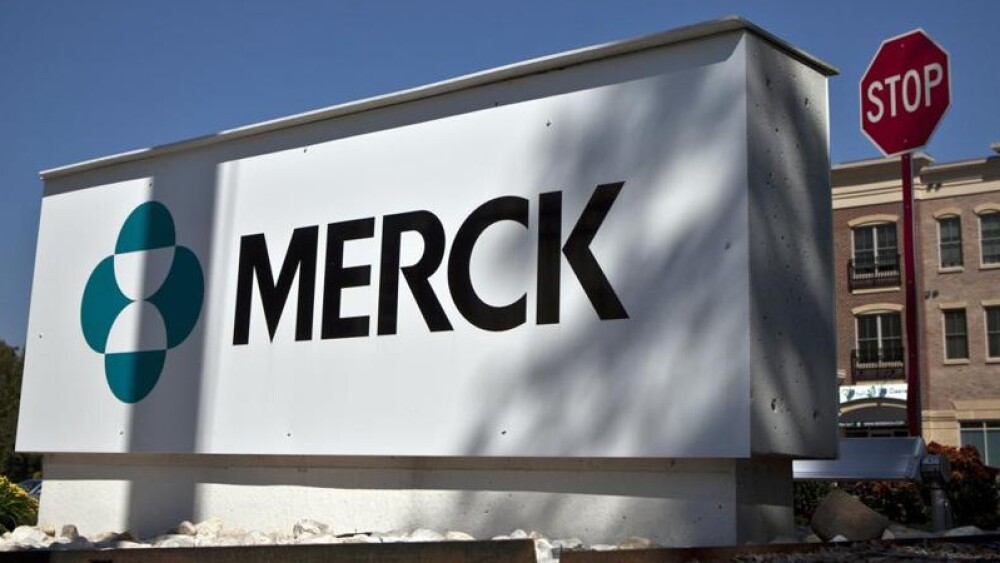November 11, 2016
By Alex Keown, BioSpace.com Breaking News Staff
NEW YORK – Investing in the stock market has often been equated with legalized gambling – you can win or lose big money. Some companies are seen as safe investments over the long-term, but even then, there are risks. Analysts at The Motley Fool debated the pros and cons of buying shares of Merck & Co. , one of the blue-chip pharma companies.
Analysts George Budwell and Cory Renauer dissect Merck’s growth potential over the next few years as it faces the loss of patents on drugs like Remicade, Cubicin and Zetia. While revenue streams from those drugs will be challenged, Budwell said he believed investors should stay patient because Merck’s immuno-oncology drug Keytruda, a PD-1 inhibitor, is liable to become a top revenue driver for the company.
Keytruda is gaining ground on Bristol-Myers Squibb’s PD-1 inhibitor, Opdivo, as a therapy for multiple cancers. At the end of October, the U.S. Food and Drug Administration approved Keytruda as a first-line treatment for patients with metastatic non-small cell lung cancer (NSCLC) whose tumors have high PD-L1 expression. Additionally, the FDA expanded the use of Keytruda as a second-line treatment for metastatic NSCLC after receiving platinum-containing chemotherapy. These indications mean Keytruda is likely to become even more familiar to physicians. For Budwell, the future of Keytruda alone is reason enough to stick with Merck.
“Looking ahead, Merck is attempting to push Keytruda into rarefied air in terms of commercial potential with over 200 studies currently underway across more than 30 different tumor types. Keytruda’s peak sales could reach an astronomical $15 billion within the next decade, making it one of the best-selling drugs of all time,” Budwell said.
While Keytruda is promising, Renauer said he was not sure that drug alone was enough to “offset losses to incoming competition for some of the company’s best-selling products.” He pointed out that revenue losses for Remicade in Europe following the loss of exclusivity in that market are a sign of what’s to come for Merck. When it comes to the anti-cholesterol drug Zetia, Renauer said that drug will likely begin seeing competition from a generic version marketed by India’s Glenmark Pharmaceuticals. Another drug that could be a sticky point for Merck’s growth is the diabetes drug, Januvia. Although it is not facing loss of patent protection, Renauer said sales of the product have been sliding as it “loses ground to increasingly popular GLP-1 agonists, such as Eli Lilly‘s Trulicity, and SLGT2 inhibitors like Invokana from Johnson & Johnson.”
“With products responsible for roughly 29% of total sales under threat, achieving growth in the years ahead won’t be easy for Merck. At about 17 times forward earnings, Merck shares aren’t terribly expensive, but I think you can find better bargains in the healthcare sector,” Renauer said.
Budwell added that it would be foolish to also overlook Merck’s pipeline, which has numerous drug candidates that should, barring clinical or regulatory stumbles, provide enough cushion for Merck as it loses revenue on drugs that no longer have patent protection.Shares of Merck are down slightly in pre-market trading at $64.17. The stock closed Thursday at $64.96 on Thursday.





